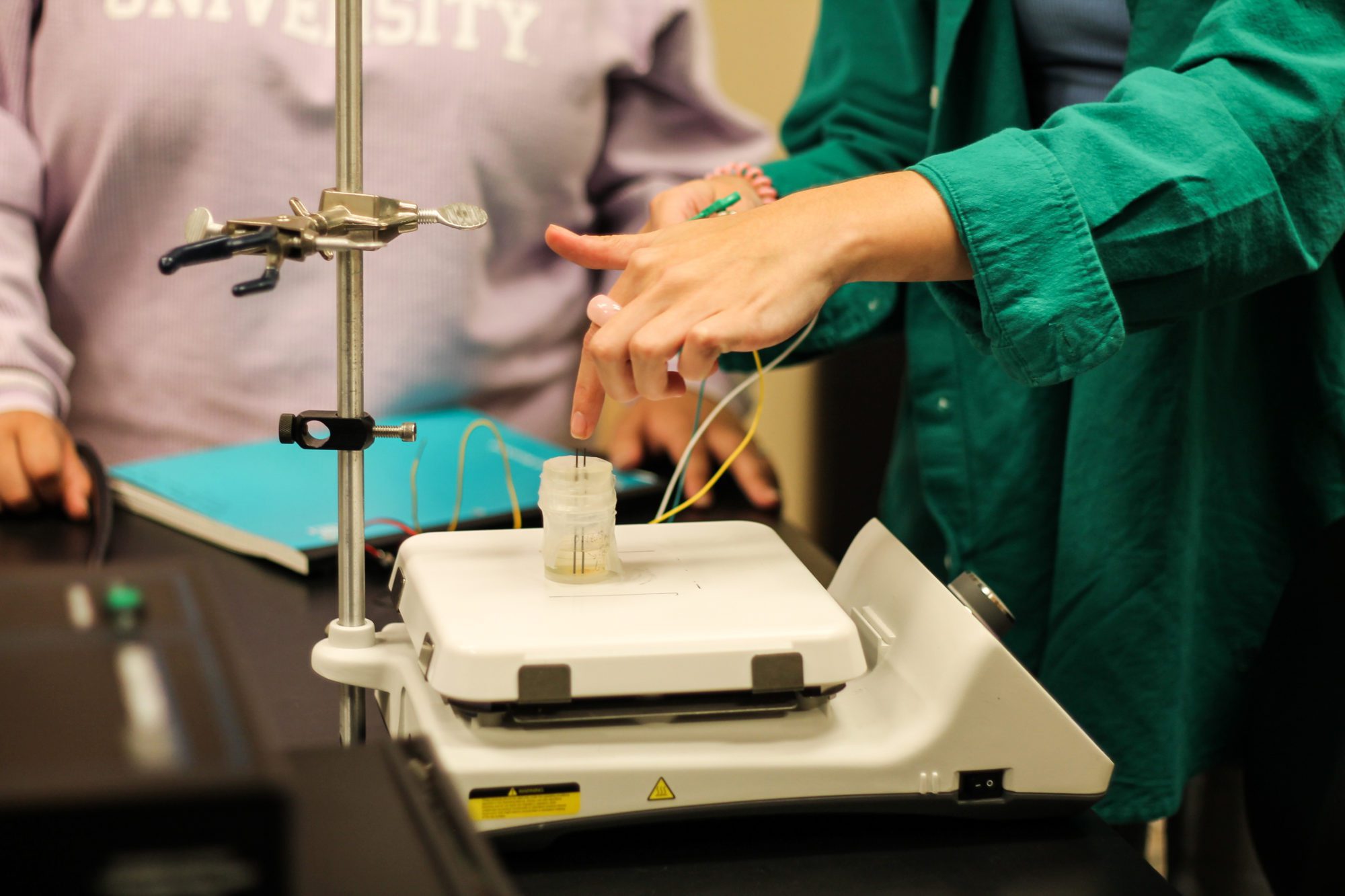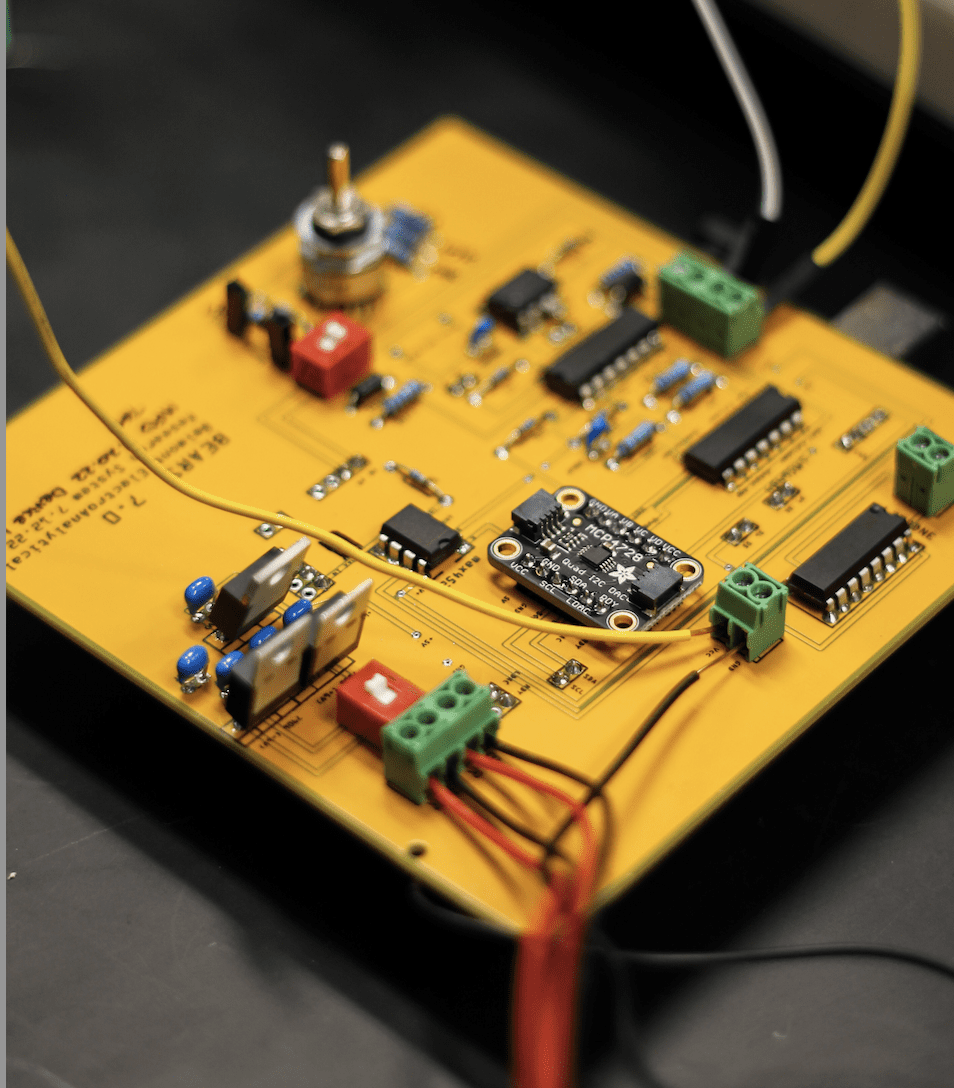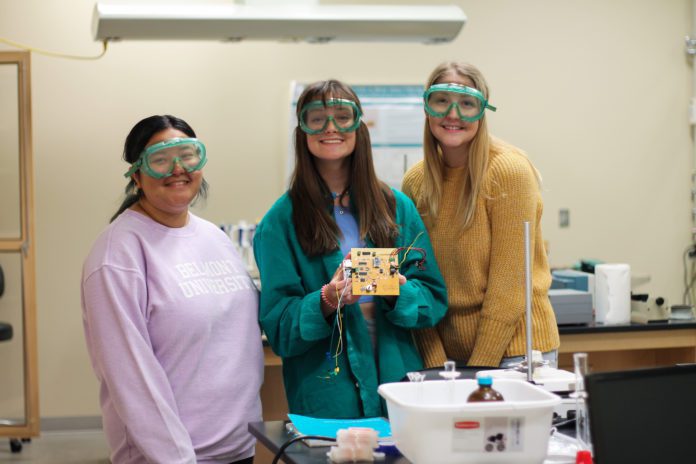Five years in the making, one of Belmont’s student research groups has made groundbreaking progress on a new device that can detect heavy metal contamination in substances. The project significantly progressed in the summer of 2021 with the help of three rising sophomores and one rising junior as a part of SURFS (Summer Undergraduate Research Fellowships) at Belmont. These summer programs allow students who are at all parts of their undergraduate journey to get involved in research.
Dr. Thomas Spence, dean of the College of Science and Mathematics, helped facilitate the experience. “We have problems with lead in urban environments because we’ve put lead in gasoline for so many years. The instruments we routinely as chemists to test that sort of thing are extremely sensitive but also very expensive. Over the past decade, there’s been this sudden availability of hobbyist-level electronics that we didn’t have access to in the sciences forever, which could enable really inexpensive devices to be developed. So that’s where the idea came from- we could use one of these relatively inexpensive devices to build an instrument that would allow us to detect lead using an electrochemical system.” With Spence’s background in laser spectroscopy, electrochemistry was all new to him. “I was learning a lot of it right alongside my students,” he said.
The students themselves learned a multitude of valuable skills, such as taking quality notes for future students and interpreting notes from past researchers. “While you’re a student, you’re usually working on a project that got started when you got there and will continue on after you leave,” said Dr. Spence. “Part of it is learning how to take good notes- not for yourself, but for that lab and allowing the project to move forward, even if you go on to bigger and better things.”

In SURFS, students develop a multitude of critical thinking skills that will set them up for the rest of their Belmont career. “It was the summer after our freshman year, so we had very limited lab experience,” explained Liz Joiner, a current junior biology major. “The first few weeks it was our professors teaching us all about it. Then we were kind of on our own.” She laughed. “It was very humbling to see these two very smart professors admit that they don’t know some things. But really when you’re doing research no one knows what they’re doing for the most part. You’re just kind of learning as you go, which is really cool.”
At times, they also learned the importance of patience in the midst of setbacks and undesirable results. “We did so many of the same things over and over,” said current junior biology major Autumn Grimsley. “At one point it felt like we weren’t getting anywhere… and then we did!”

By the end of their program, the prototype was fully functional and at a fraction of the cost most devices of that kind are listed at, pricing less than $200. Lydia Haworth, a current junior chemistry student, said it could “work to detect heavy metals in a variety of samples- such as lead, copper, iron, or mercury.” Using three electrodes that stick into it, the device can measure the amounts of substances that are stripping on and off of it. “It gives us some data into a computer, and we can then chart that data and see what peaks arise as well as a graph that says where this specific metal is,” she explained.
Each student was able to select a different test material with real-world application, such as soil, water, lipstick, or medicine. At the end of the program, students amongst all of the Summer Undergraduate Research Fellowships topics- such as chemistry, biology, physics and psychology- present their results. “Finishing SURFS is really satisfying, especially when you look at the poster and see all the work we did for 6-8 weeks,” said senior biology major Jolene Mach. “To be able to do this type of research in this short of a time span is crazy. We hit the ground running.”
For two students, their experience doing research at Belmont inspired them to shift their career aspirations and continue with scientific research beyond the undergraduate level. “I was surprised how much I would like it,” admitted Mach, who will be continuing the research next semester. “I was originally pre-med, and then I signed up for SURFS, got the chance to do research, and while I was in the lab I realized this is what I want to do. I completely switched from medical school to a Ph.D. in biochemistry.”
“We were all strangers before we started working on this project and now looking back, I feel like we’ve kind of grown closer as like people,” Grimsley reflected. “In doing research, you get a lot more than just lab skills. You get life skills and you also make deep personal relationships. If you have an opportunity to do research as an undergraduate, go for it- because you’ll get so much more out of it than you would think.”
Interested in the College of Sciences & Mathematics? Apply today!



